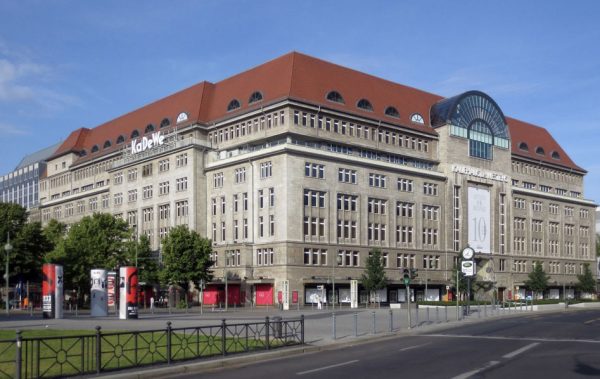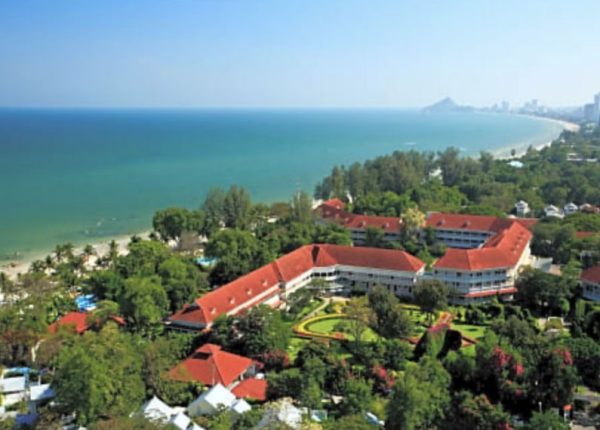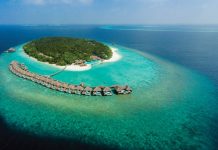BANGKOK, 25 August 2025: Step into Selfridges on Oxford Street and you can still feel the pulse of theatre. The revolving doors release you into an expanse of perfumes, polished marble, and the buzz of half a dozen languages.
For many Londoners, it is a landmark of shopping; for travellers, it is part of the city break experience. Yet the story is not British at all, but Thai. Behind this temple of retail stands Central Group of Thailand, the family-owned conglomerate that also nurtured Centara Hotels & Resorts.

In December 2021, Central agreed, with Austria’s Signa, to acquire the Selfridges Group for around UKP4 billion. The deal brought Selfridges in London, Brown Thomas and Arnotts in Ireland, and de Bijenkorf in the Netherlands into Thai hands, while Canada’s Holt Renfrew remained with the Weston family. The price was steep, the timing bold. Borders were only just reopening, and shopping habits were still unsettled. Within months, inflation surged, interest rates climbed, and Signa fell into crisis, leaving Central to take on greater control. Analysts have since called the price high in hindsight, but the strategic value of owning such real estate and brands remains indisputable.

Central’s ambitions were not confined to Britain. The group had been piecing together a European luxury portfolio since 2011, acquiring Rinascente in Italy, Illum in Denmark, Globus in Switzerland, and Germany’s KaDeWe Group. In 2024, Central went further, paying about €1 billion to acquire the KaDeWe building in Berlin, along with Hamburg’s Alsterhaus and Munich’s Oberpollinger. These names, familiar to European travellers for decades, now sit under Thai stewardship.
From my perspective, these acquisitions were a masterstroke in positioning Central, and by extension Centara, within the upper echelons of global retail. Here in Thailand, there was immense pride that a company with such humble beginnings in a Bangkok shophouse had risen so firmly to the top. For many of us in tourism, already familiar with the global prestige of Selfridges or KaDeWe, there was a sense of astonishment. These were stores we had personally experienced and admired for their superb products and presentation, and suddenly they were Thai-owned. That symbolic leap meant as much emotionally as it did financially.
Diversification first, tourism second
It is important to remember that these acquisitions were not primarily about boosting Thai tourism. Central’s goal was clear: to diversify its holdings and cement itself as a global player in luxury retail. By owning these iconic stores, Central hedged against the risks of relying too heavily on the domestic Thai market and ensured a place at the top table of international retail.
Yet tourism synergy does exist, even if it was not the driving force. Department stores like Selfridges and KaDeWe are destinations in themselves, drawing international visitors as reliably as galleries or theatres. When a Thai group owns such institutions, it becomes a subtle extension of the country’s reputation for service and hospitality. With imagination, those stores could host Thai food festivals, cultural weeks or wellness showcases, hinting at the experiences awaiting travellers in Bangkok, Phuket or Hua Hin.
The hospitality link
The other half of the family empire is Centara Hotels & Resorts, part of Central Plaza Hotel Public Company Limited. It has grown into one of Thailand’s largest hotel operators, with luxury Centara Reserve, flagship Centara Grand, and the youthful COSI among its brands. At home, its resorts in Hua Hin, Samui, Phuket and Pattaya are household names. Abroad, Centara has expanded to the Maldives, Vietnam and the Middle East.
The Chirathivat family’s reach therefore spans both sides of consumer life: retail and resort. These businesses may not appear to overlap, but both rest on the same foundations of service, space and experience. The family that spends a weekend shopping in London or Berlin is the same demographic that might book a winter escape in Thailand.
Headwinds and resilience
It is not easy to wipe away a 20% discount. That is effectively what happened when the UK government removed VAT-free shopping for international visitors in 2021. Paris and Milan still offer the rebate, and high-spending travellers have noticed. London has lost ground, and for an owner like Central, heavily invested in Selfridges, that policy choice has been a persistent drag.
In Berlin, KaDeWe’s recent financial troubles came from property structures rather than empty aisles. By buying the buildings outright, Central ensured stability. It was a reminder that ownership matters as much as brand power.
Thailand’s advantage

Back in Thailand, tourism is once again booming. The country welcomed more than 35 million international arrivals in 2024, and by mid-2025, the tally had already passed 18 million. Revenues are substantial, and Centara, with its vast domestic network, is well-positioned. Hotels provide steadier cash flow than European retail and are arguably the stronger growth engine today.
The verdict
So was the Selfridges acquisition a mistake? No. It was costly and poorly timed in terms of macroeconomics, but strategically, it was a great generational move. Oxford Street, KaDeWe and the other icons are rare trophies that can anchor a portfolio for decades.
Was tourism the reason? Not directly. The driving force was diversification. But tourism synergy is real, and it adds a valuable dimension. For Thailand, there is quiet pride in knowing that these European legends are stewarded from Bangkok.
For me, that pride was unforgettable. As someone who has walked the aisles of Selfridges and KaDeWe as a visitor, and who has watched Thailand’s hospitality industry grow, seeing those names become Thai-owned felt like a cultural victory. It was proof that a country built on service and welcome could now claim a place among the world’s most prestigious retail families.
The handbag purchased on Oxford Street may not lead directly to a holiday in Hua Hin, but it tells a story of Thai ambition, Thai confidence, and Thai hospitality finding a new stage on the global map.
About the author
Andrew J Wood is a respected travel writer, hotelier, and tourism lecturer with over four decades of experience in Southeast Asia’s hospitality and tourism sectors. A former general manager of several leading hotels in Thailand, Andrew is also a past president of Skål International Asia, Skål International Thailand, and Skål International Bangkok. He contributes regularly to regional and global travel publications and is known for his insight into emerging travel trends and passionate advocacy for Thailand as a world-class destination.







Dear Andreas,
Many thanks for your kind words 🙏. I truly value your perspective, especially given your expertise in PR and communications. You’re right, Thai hospitality and lifestyle brands really do shine on the global stage, and it’s encouraging to see them recognised more widely.
I look forward to sharing more of these inspiring stories ahead‼️
Warm regards,
Andrew J. Wood
Good article!
I see great potential for the Central Group to promote Thai Inbound Tourism as well as Thai Food and Thai Products via their many upmarket shopping centers all over Europe.
Great strategy!👌👍🇹🇭
Dear Khun Luzi,
Many thanks for your kind words and thoughtful comment. You are absolutely right, Central Group has a golden opportunity to use its extensive European retail footprint not only to showcase Thai products and cuisine but also to strengthen Thailand’s image as a world-class tourism destination. I couldn’t agree more that this strategy can create a powerful bridge between Europe and Thailand.
With warm regards,
Andrew J. Wood
25 August 2025
Such an insightful article! Always love seeing how Thai hospitality and brands continue to expand on the global stage. Looking forward to more inspiring stories ahead.